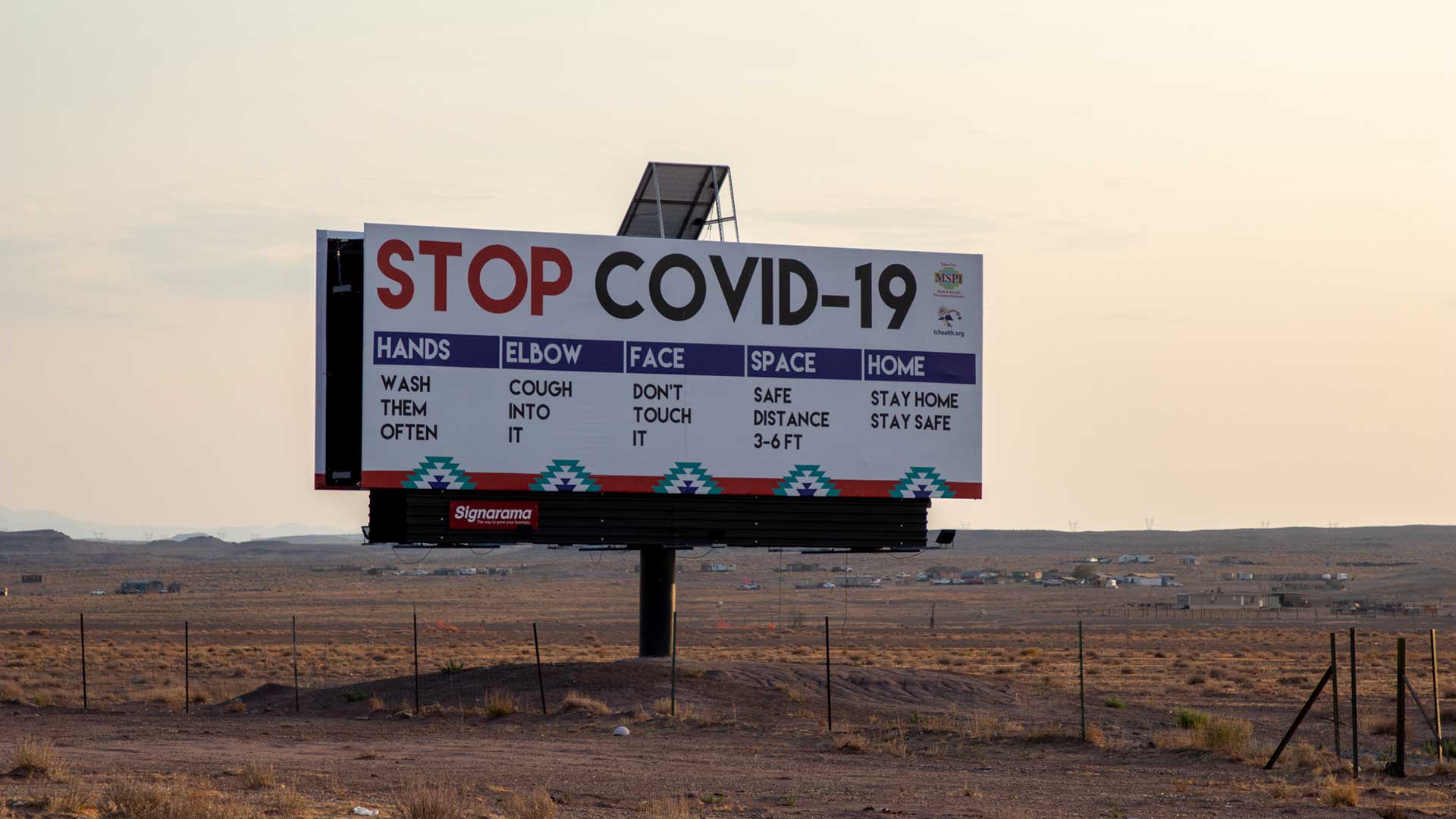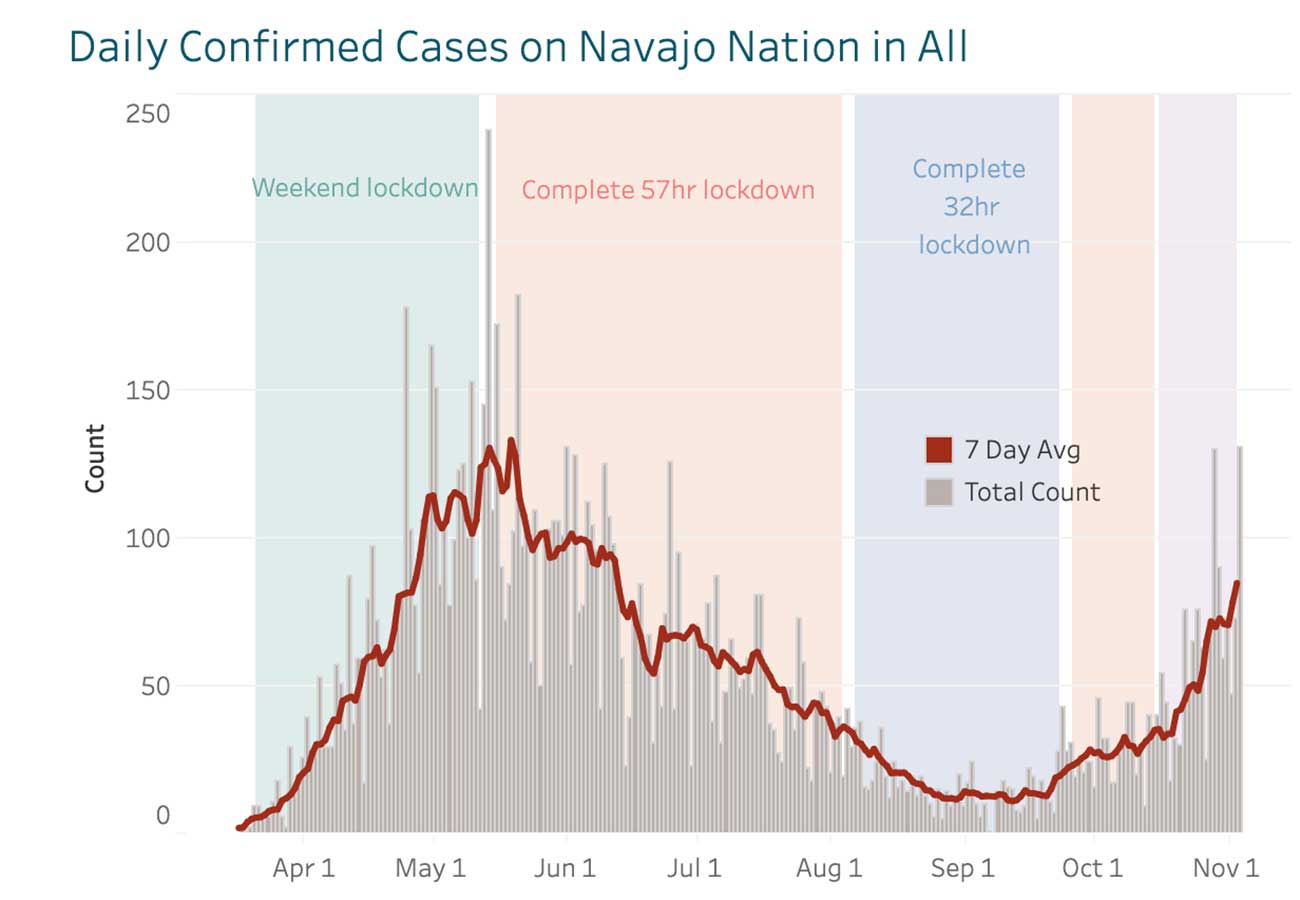 Navajo Nation President Jonathan Nez said the "Stay home, stay safe" message from the tribal government guarantees that businesses in the nation have the "the safest environment" compared to those outside its tribal lands during the pandemic.
Navajo Nation President Jonathan Nez said the "Stay home, stay safe" message from the tribal government guarantees that businesses in the nation have the "the safest environment" compared to those outside its tribal lands during the pandemic.
As COVID-19 cases rise across the Navajo Nation, the tribal government has decided to switch from weekend lockdowns to a curfew system for the first two weekends in November as an effort to curb COVID-19 cases.
Several Navajo communities that lie in Arizona, Utah and New Mexico are experiencing "uncontrolled community spread of COVID-19," according to the public health order and press releases. The Navajo Department of Health reported 72 new coronavirus cases and two deaths Tuesday and 131 new cases Wednesday. Over the last several months those living in the Navajo Nation have experienced some form of lockdown or curfew on the weekends, recently the nation has enforced a streak of 56-hour weekend lockdowns with all stores closed.
"We are hearing reports that on the weekends people that are needing essentials leave the Navajo Nation to border towns, and border towns don't have the stringent protocols that Navajo businesses do," said Navajo Nation President Jonathan Nez.
 VIEW LARGER Graph displaying the number of COVID-19 cases in the Navajo Nation from mid-March 2020 to early November 2020.
VIEW LARGER Graph displaying the number of COVID-19 cases in the Navajo Nation from mid-March 2020 to early November 2020. He said businesses in the Navajo Nation must conduct temperature checks, limit occupancy, and provide hand washing or sanitizing stations, plus everyone must wear a mask.
To decrease the need to travel Nez said the government is allowing some essential businesses, like grocery stores, gas stations, laundromats, to open from 7 a.m. to 3 p.m.
"That way we can keep our Navajo people on the Navajo Nation so that they don't leave the Navajo Nation and possibly catch the virus and bring it back or vice versa," said Nez.
During the weekend curfew, the daily curfew of 9 p.m. to 5 a.m. is still in effect.
Nez said contract tracers attribute the uptick in cases to family or social gatherings, but so far there have been fewer cases reported in the second wave than there were in the first wave that peaked in May.
"This shows that a sovereign nation — a tribal government — that develops their own laws and policy can keep this virus at bay," said Nez. "Dr. Anthony Fauci did mention that this could be a model to emulate."
Nez said that the government is also preparing a public health emergency order requiring those entering the Navajo Nation to quarantine and be tested for COVID-19 upon entry. Traveling through the nation is allowed, but Nez asked that all visitors wear masks and try to get through as quickly as possible.
For more COVID-19 data in the Navajo Nation, visit the Navajo Epidemiology Center's website or attend the Facebook town hall Thursday at 6 p.m.
https://www.facebook.com/NezLizer2018/posts/2645300205735506

By submitting your comments, you hereby give AZPM the right to post your comments and potentially use them in any other form of media operated by this institution.